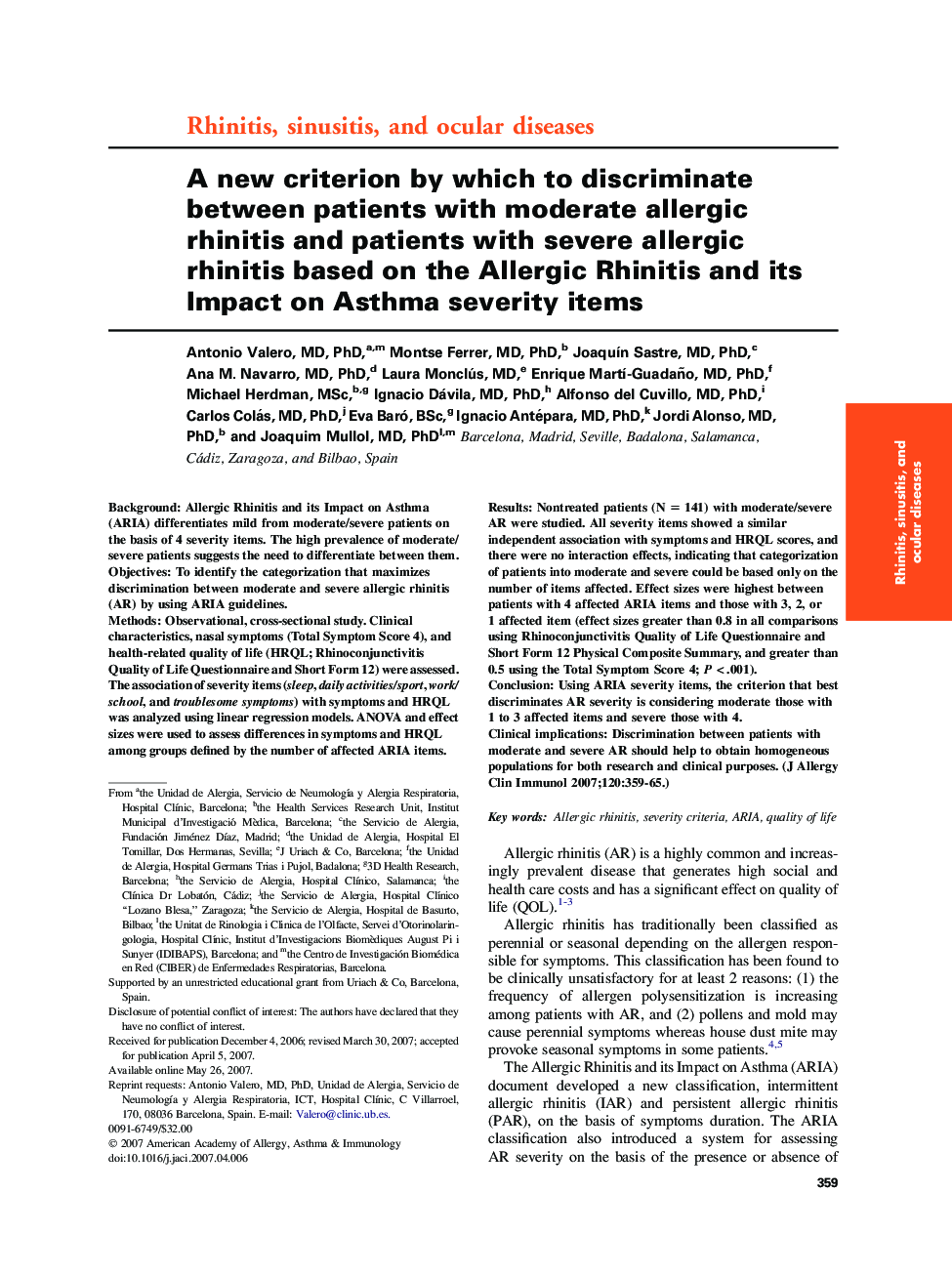| Article ID | Journal | Published Year | Pages | File Type |
|---|---|---|---|---|
| 3201728 | Journal of Allergy and Clinical Immunology | 2007 | 7 Pages |
BackgroundAllergic Rhinitis and its Impact on Asthma (ARIA) differentiates mild from moderate/severe patients on the basis of 4 severity items. The high prevalence of moderate/severe patients suggests the need to differentiate between them.ObjectivesTo identify the categorization that maximizes discrimination between moderate and severe allergic rhinitis (AR) by using ARIA guidelines.MethodsObservational, cross-sectional study. Clinical characteristics, nasal symptoms (Total Symptom Score 4), and health-related quality of life (HRQL; Rhinoconjunctivitis Quality of Life Questionnaire and Short Form 12) were assessed. The association of severity items (sleep, daily activities/sport, work/school, and troublesome symptoms) with symptoms and HRQL was analyzed using linear regression models. ANOVA and effect sizes were used to assess differences in symptoms and HRQL among groups defined by the number of affected ARIA items.ResultsNontreated patients (N = 141) with moderate/severe AR were studied. All severity items showed a similar independent association with symptoms and HRQL scores, and there were no interaction effects, indicating that categorization of patients into moderate and severe could be based only on the number of items affected. Effect sizes were highest between patients with 4 affected ARIA items and those with 3, 2, or 1 affected item (effect sizes greater than 0.8 in all comparisons using Rhinoconjunctivitis Quality of Life Questionnaire and Short Form 12 Physical Composite Summary, and greater than 0.5 using the Total Symptom Score 4; P < .001).ConclusionUsing ARIA severity items, the criterion that best discriminates AR severity is considering moderate those with 1 to 3 affected items and severe those with 4.Clinical implicationsDiscrimination between patients with moderate and severe AR should help to obtain homogeneous populations for both research and clinical purposes.
